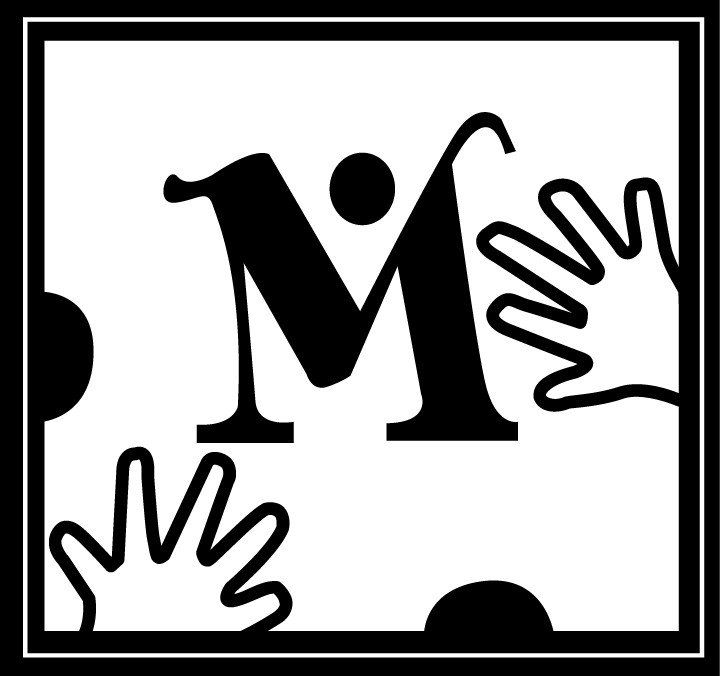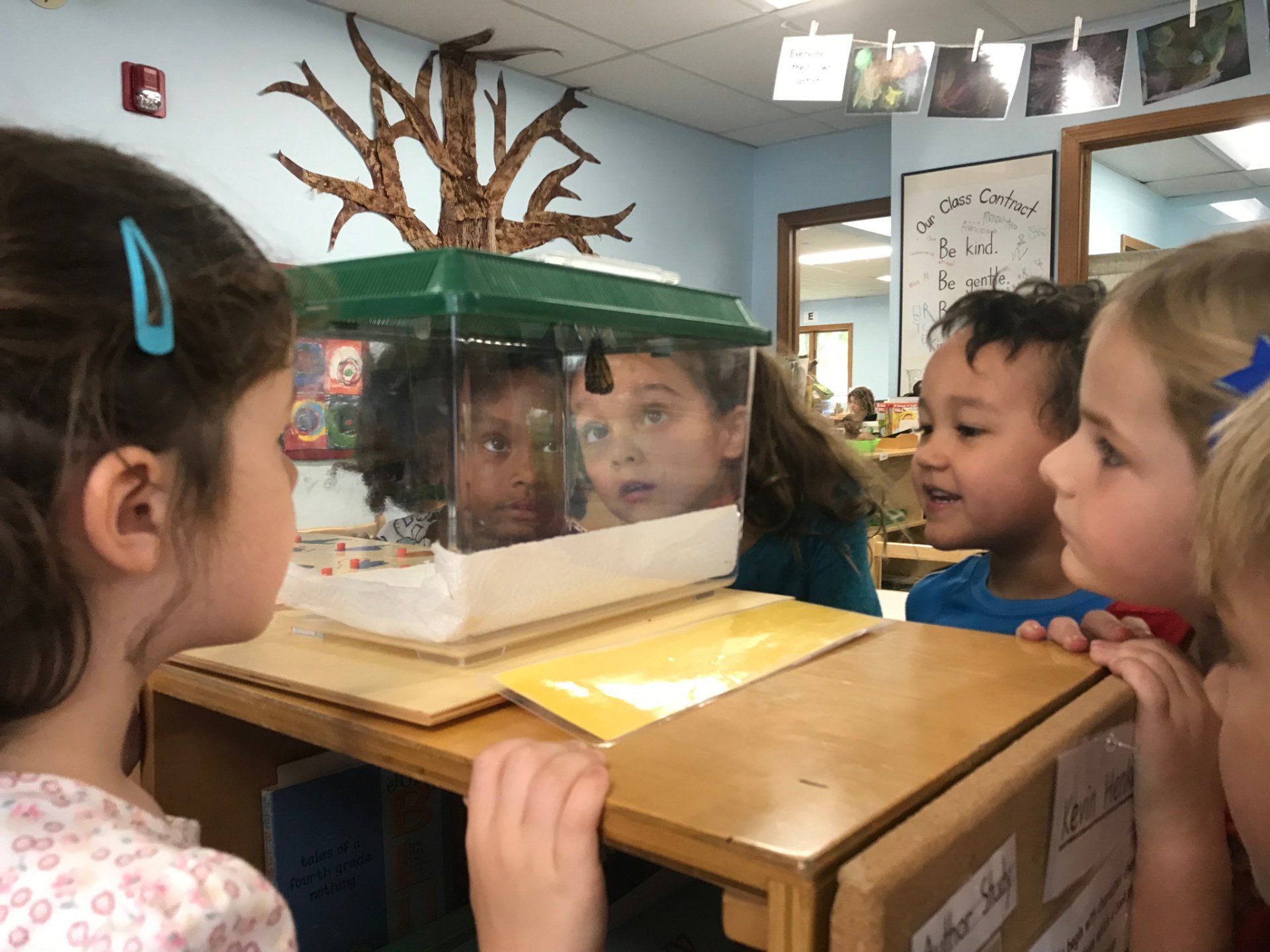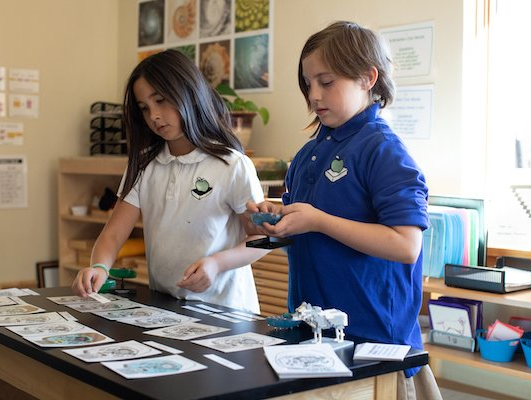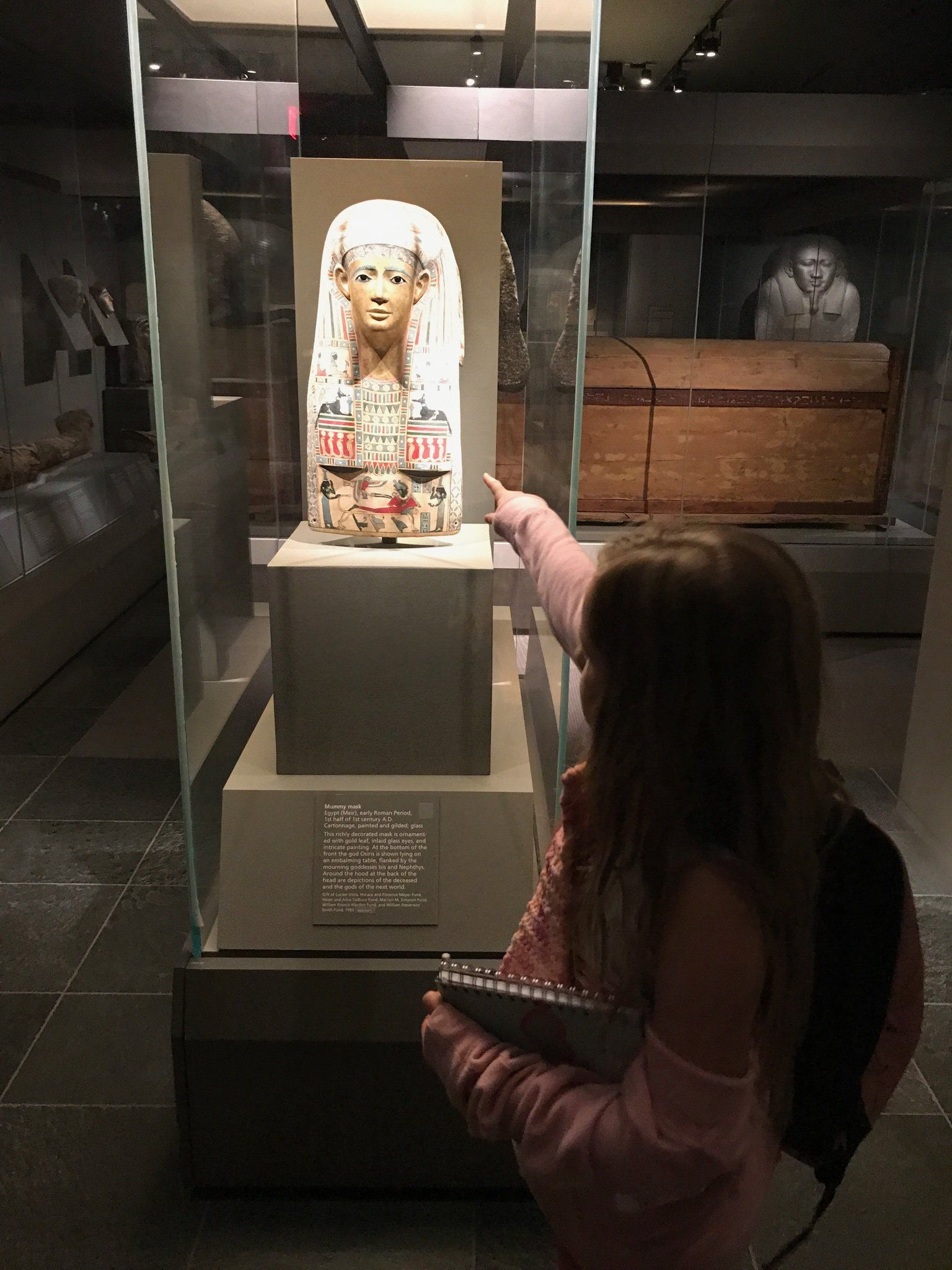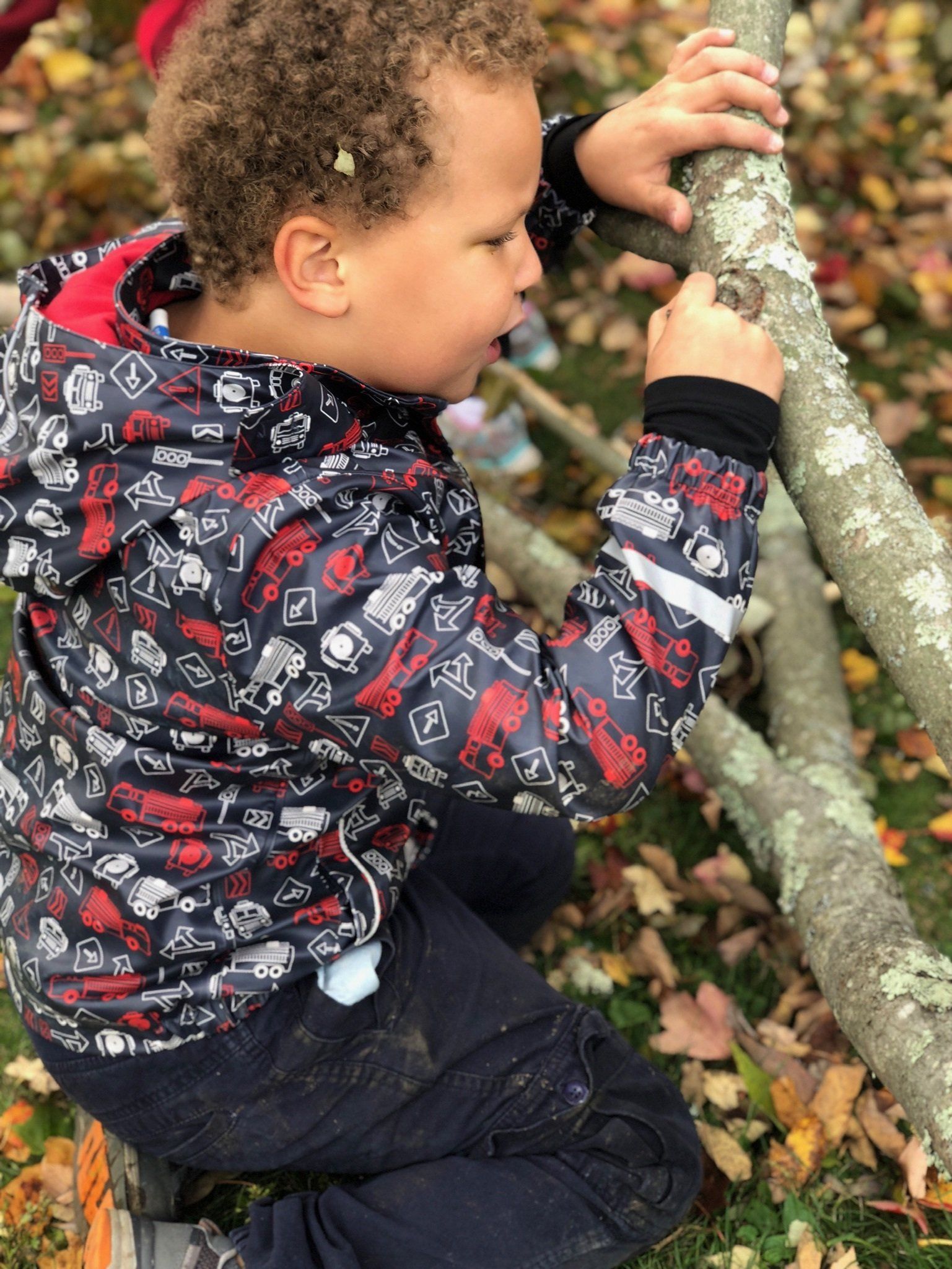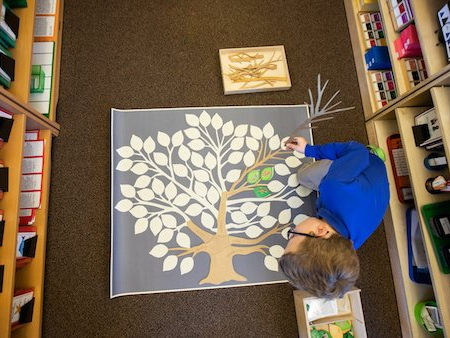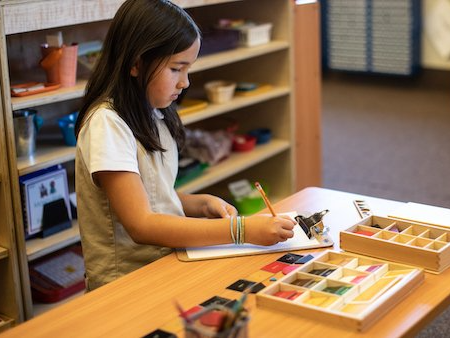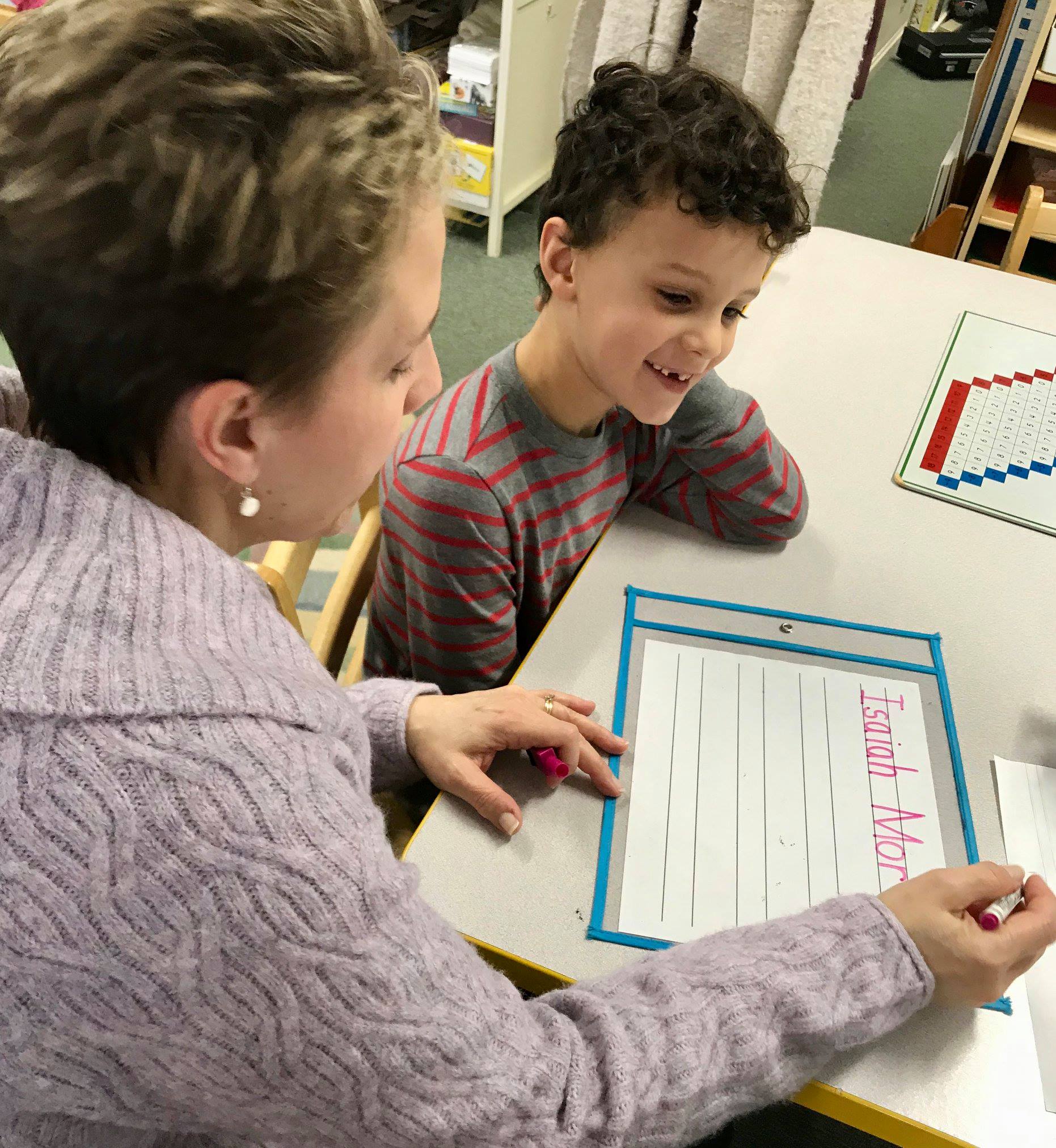Kindergarten and Lower Elementary
Learning How to Think
(4.9 – 9 years)
Full Day Kindergarten and Lower Elementary School Programs
Hands-On Montessori, Mansfield MA, offers a nurturing, private elementary school experience with its full-day kindergarten and lower elementary programs up to third grade (ages 4.9 to 9 years).
Full (Extended) Day Kindergarten
Our Extended Day kindergartners are in school from 8:30 a.m. to 3:30 p.m., Monday through Friday. They must be at least 4.9 years of age by September 1 and demonstrate a developmental readiness for a full day of school.
Social/emotional development and the development of physical endurance for a full day are considered and given equal weight when deciding if this program is right for your child.
The Extended Day Kindergarten class time is an extension of the learning that takes place in our mixed-age Preschool program for ages 3 to 6 years old. This program gives your child the opportunity to work with like aged peers as well as older friends to review, reinforce, or build on lessons, concepts and skills that they are learning while in their preschool class. Additionally, Extended Day kindergartners participate in the Junior Great Books program, “writer’s workshop”, and extended cultural activities.
Extended Day students enjoy lunch and outdoor play with the Lower Elementary students daily. They have the opportunity to work with the older Lower Elementary students during our weekly scheduled “Reading Buddies” time. They’ll also enjoy invitations to observe and/or participate in lessons or cooperative projects with these older students when appropriate.
Lower Elementary School (Grades 1 to 3)
Hands-On Montessori elementary school students are in classes from 8:30 a.m. to 3:30 p.m., Monday through Friday. Children ages 6 to 9 years old are gradually moving from concrete learning to more abstract learning. Our elementary classes balance the child’s developing imagination with concrete, hands-on materials. The skills acquired during the preschool years are expanded in the meaningful context of the “big picture”. Their curiosity about the world and their place in it is nurtured to promote an inner motivation to learn.
In addition to reading, writing and arithmetic, our elementary students study Maria Montessori’s 5 Great Lessons. Through these Great Lessons, students study and learn natural science, geometry, history, biology, botany, zoology, geography, geology, art, music, culture and more. They learn to respect themselves, each other, our world, its people and our natural resources. All this learning takes place through individual, small group and large group lessons in a mixed-age, multi-year class.
Through the Montessori integrated curriculum over the course of the three year program, students acquire the knowledge, skills and self confidence to succeed and become life-long lovers of learning.
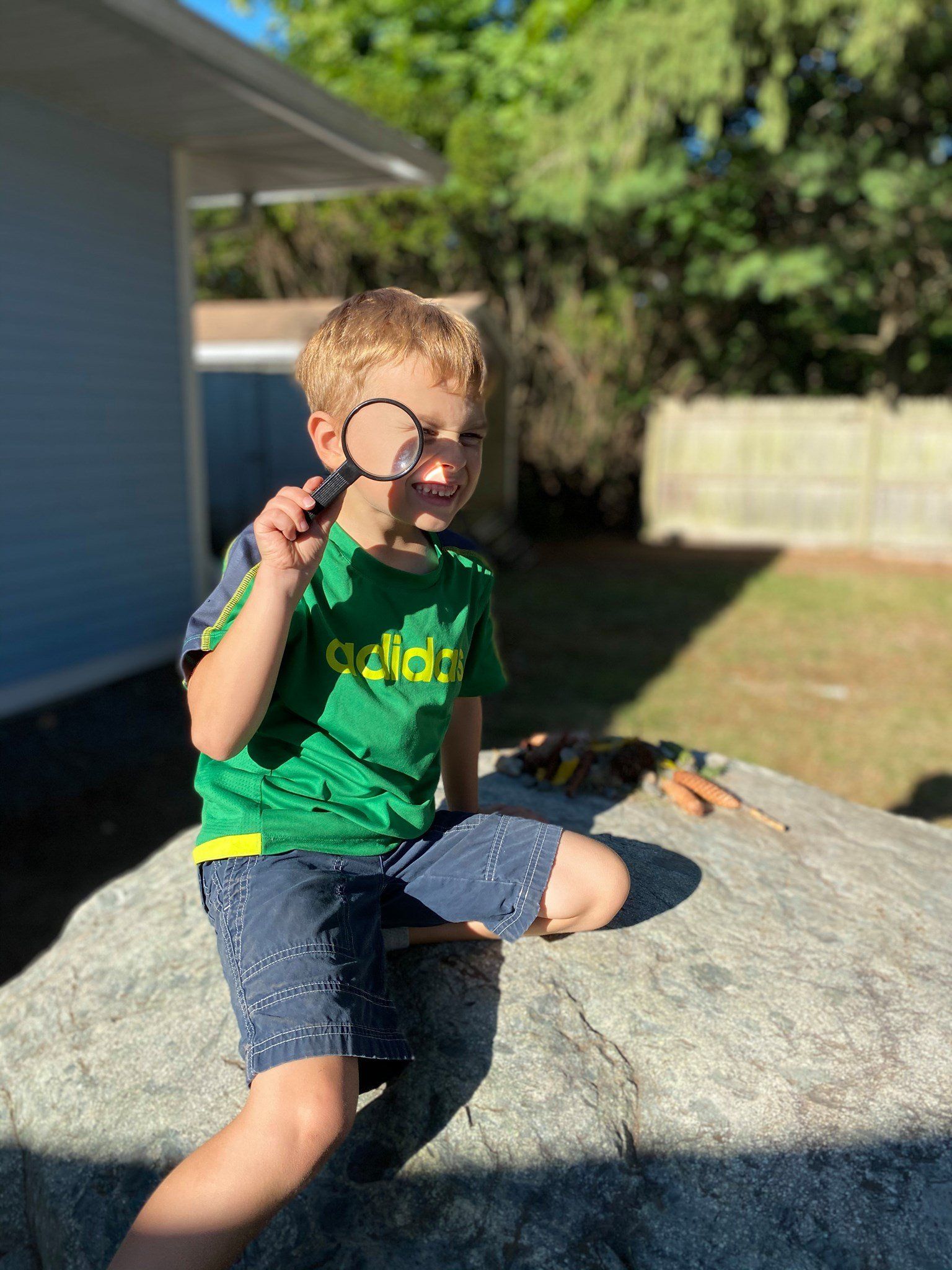
Learning without Limits
Your child will study both broadly and deeply, covering many subjects not attempted in conventional schools. Because there is not a rigid schedule or prescribed curriculum that the whole class must follow, your child can focus intensely on their self-chosen work, with minimal interruption. At the same time, they will collaborate with the teacher to ensure that their work is challenging and purposeful – and that basic standards are met. In that way, the teacher is in charge of the minimum scope of work – your child is in charge of the maximum.
The Teacher is an “Enlightened Generalist”
To quote Bruce Lee: “A teacher is never a giver of ‘truth;’ he is a guide, a pointer to the truth that the student must discover for himself.” We couldn’t agree more. Our AMS credentialed Montessori teachers don’t have a specific area of expertise and we don’t have “specialist” teachers for subjects like art, P.E., or music. Instead, our teachers have a broad knowledge of all subject areas – more than enough to help your child discover interests in any area imaginable and challenge them to deepen the field of study through research.
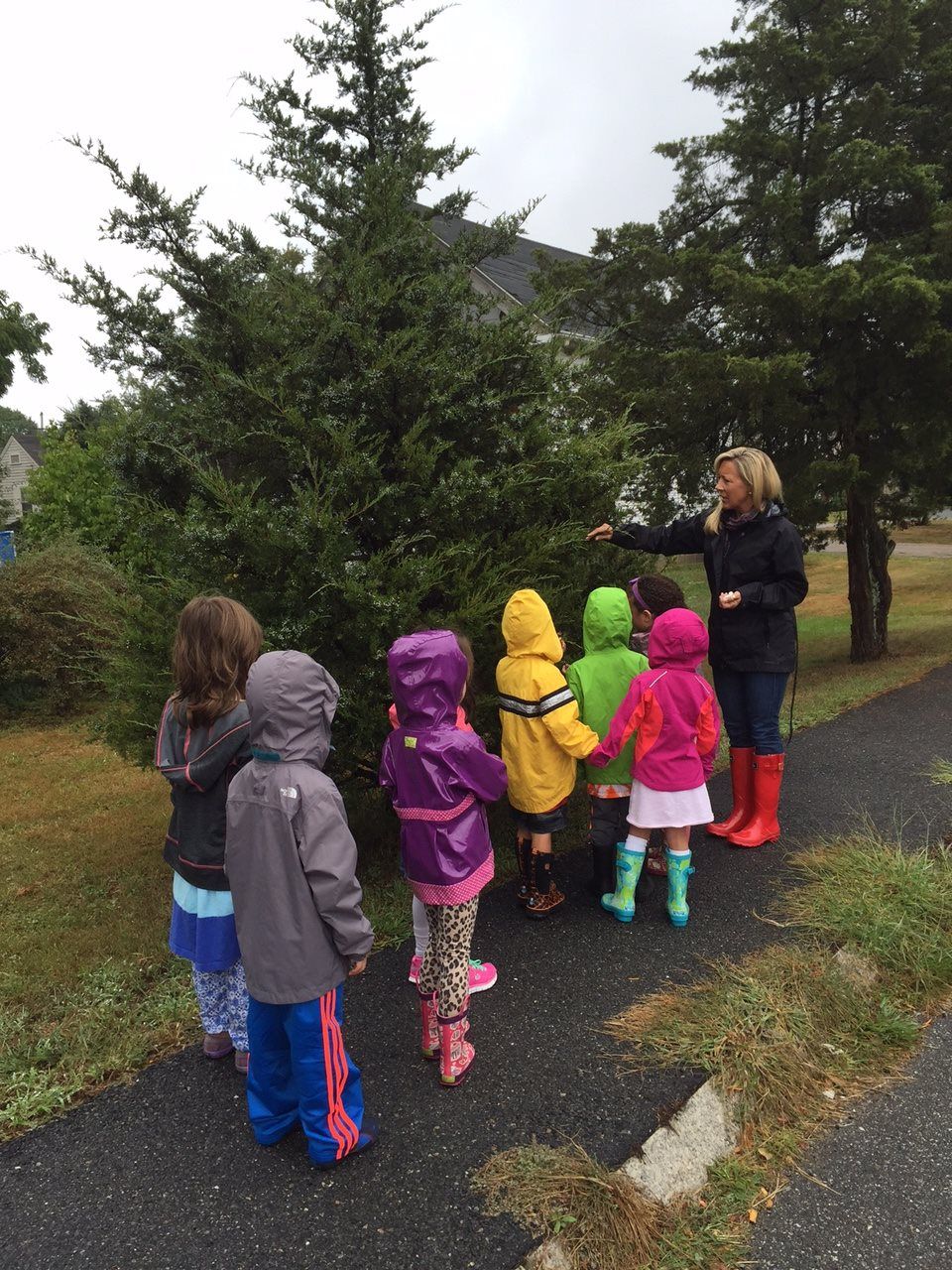
The Format Mirrors Your Child’s Developmental Needs
Your elementary age child has a strong drive for social connection. They are starting to develop deeper friendships and a connection to the community around them. Why then, would we want them to learn in rows of desks, confined to a chair, while the teacher lectures the class as a group? Instead, we embrace your child’s natural need for social exploration by giving lessons in small groups and encouraging children to work with a variety of others on follow up projects and research into subjects of intense interest.
Learning Occurs Beyond the Classroom
We want the children to be comfortable navigating the world, not just our classroom. So, we have a few excellent books, but not everything there is to read about a topic. As a result, the children must ‘go out’ beyond the limits of the classroom to find the information or resource that they need. A ‘Going Out’ is a planned undertaking by a small group of children. They find a resource in the community, schedule the outing, arrange for their own transportation and supervision (by staff or parent volunteers), prepare themselves for the experience and conduct themselves with dignity while out in public.
Learning in Context for Deeper Understanding
Unlike in a conventional program with a separate time of the day for each subject, your child will gain a much deeper understanding of concepts by learning in context. The starting point for all courses of study is the “Great Lessons;” these impressionistic and scientific stories give your child the “big picture” of astronomy, earth science, geography, physics, biology, history, anthropology, cultural and social studies, language, math, music and art. Meaningful learning happens when children understand the “why” as much as the “what” – and are inspired to learn even more on their own.
Achieving the State of “Flow”
Think about how you do your best work. Is it when you are interrupted by others or when you work to an external time table? Probably not. Why, then, is it any different for your child? Our class day consists of long, open ended work periods that respect your child’s curiosity and concentration. They may choose to form or join a group to work with concepts introduced in a lesson. And, because they are free to move around the classroom, it’s not uncommon for ideas to spread; children are stimulated not just by the lessons they receive, but by each other.
Learning as its Own Reward
We have high expectations for your children, and believe that rewards and punishments appeal to the lowest levels of their intellect. Given a sticker, they will do their best for a few minutes. Given experiences that help them to believe in themselves and their abilities, they will do their very best for a lifetime.
Prepared and Confident
The ultimate goal of the elementary program is to develop the students’ abilities and self confidence so that they are able to take charge of their own learning. Students who have gained an appreciation for the enormous scale and resources of the world through the elementary curriculum are ready to explore their place within that world through our
Upper Elementary Program in Mansfield, MA and nearby.
Frequently Asked Questions About Our Kindergarten Program
“My daughter has been attending Hands-On Montessori School for the last 4 years, beginning with extended day kindergarten. I am really pleased with how she has advanced and matured. In addition it has always been a pleasure interacting with the teachers, staff and other parents.”
- Margaret R
